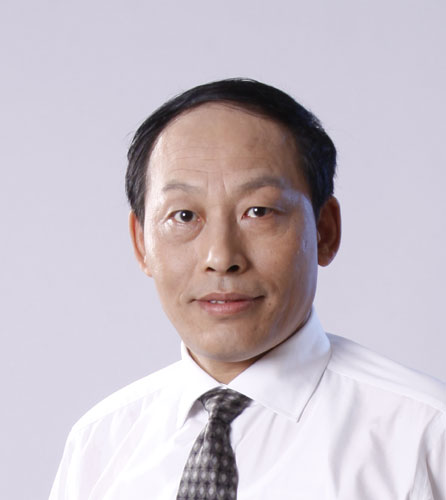The ABCs of birds and bees
Updated: 2011-04-13 09:31
By Cang Wei (China Daily)
|
|||||||||||
|
 Peng Xiaohui is a professor of sexology at Central China Normal University. [Photo/China Daily] |
Beijing - Even after 19 years of teaching, Peng Xiaohui still isn't sure how to really turn people on.
The 54-year-old professor, supervisor of the country's only university department for studying human sexuality, is worried about attracting enough students to his area of expertise so he can hand down his knowledge to a new generation after he retires in six years.
"I have great expectations for the future of sexology in China, but now the progress of the subject is really just hobbling along," Peng said.
Sexology encompasses the physical and psychological aspects of sex, as well as dealing with sexual relationships during human communication and contact.
"Due to Chinese traditions, many primary and high schools don't teach sex education, leading to many tragedies," Peng said. "One thing that really had an impact on me was a daughter being beaten to death by her mother only because she peeped at a boy urinating next door.
"Curiosity about sex and sex itself are human nature. If enough sex education is provided by schools, such a tragedy will never happen again," Peng said.
But his third postgraduate student, and the country's only graduate in sexology this year, Peng Lulu (no relation), has not been able to find a job. Peng Lulu, intended to land a job in education, hopefully taking her teacher's position after his retirement.
"Lulu has acquired all the qualities of teaching sex education in college," said Peng Xiaohui, who chairs the sexology department at Central China Normal University in Wuhan, capital city of Hubei province.
But at present, few universities hire professionals in sexuality since they don't offer sexology as a major. In fact, Central China Normal University is the only one to offer the major in China, mostly thanks to the professor's constant pushing.
Moreover, one usually needs to have a doctorate degree to become a teacher in college, which is impossible for Peng Lulu because China doesn't recruit doctorate students in sexuality.
She has also failed to secure a position in high school or primary school, where sexuality is usually considered a minor course taught by ordinary teachers.
"Her difficulty in finding a job exemplifies one of the existing problems in the current education system," the professor said. "In the early 1990s, China regulated that sex knowledge should be included as part of the country's college health education, but most universities didn't follow the regulation."
Sex education in primary schools and high schools in China is not taught well, Peng said, because "most of them only care about exams and marks".
In 1992 he opened an elective course about sexology that was warmly welcomed by college students - more than 18,000 students have so far participated in his course.
Compared with the students' enthusiasm, the attitudes of universities are more lukewarm. From 2003 to 2005, Peng spent two years meeting university presidents and deans nationwide, advocating the establishment of sexology departments. The effort got nowhere.
"Many college heads don't consider teaching sexual knowledge to college students important, because it is not included in the assessment of a university, which is crucial to their careers," said Peng, a teacher for more than 27 years.
"No one wants to be the first person to eat a crab," he said, quoting the Chinese saying.
Even his own sexology department is affiliated to zoology under the school of life sciences. Some teachers in the university gently tease him about it, but Peng always smiles and says, "Aren't human beings animals?"
Recent exposure in the media has lightened the professor's hope for the future of sexology in China. More than 4 million entries about him and his postgraduate can now be found on Google.
He opened a micro blog on the Internet and in six days it attracted more than 50,000 fans. Now he is considering opening an online class to teach sex knowledge to Chinese students.
At the same time, he is trying to seek financial support from business circles to send his students to study abroad for a doctorate degree in sexology.
"My students are like my children. I want them to find good jobs, and I want sexology in China to have a promising future."











